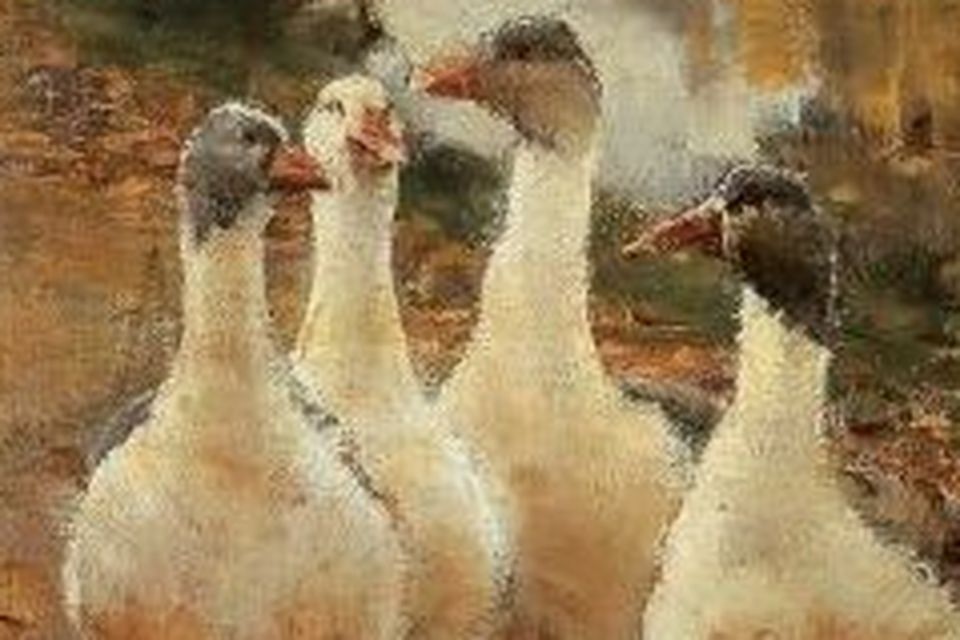September Song in a wild berry good year
Feast: John Lavery’s 'Goose Girls' — Michaelmas is a time to cook the festive bird
Berries are bountiful in the boreens, l jotted down here one year.
Forgive me, but it's true again. There is a magnificent hedgerow harvest of sloes, blackberries, crab apples and elderberries. Scarlet rowans bend boughs as do haws, beech-mast and hazel, while plenty of holly is promised for Christmas. I almost forgot mushrooms, though slugs are doing their work in earnest.
The heat and rain have crabs and elders hanging together like lovers in a swoon but only enthusiasts of country wines will gather berries, though apple jelly and jam makers will be spoilt for choice. Much elder fruit will be left for birds or fall for mammals and insects.
Blackberry picking was once a regular Sunday activity for families and it once also supported a home industry when the fruit of one's labour was a cash crop at the co-op. It was vital to pick and deliver promptly because the fruit quickly softened. The schoolboy Seamus Heaney and pals foolishly saved their pickings in an old bath but soon "a rat-grey fungus" glutted the cache. He bemoaned the loss: "It wasn't fair that all the lovely canfuls smelt of rot/Each year I hoped they'd keep, knew they would not."
Blackberry time is almost over and tradition has it that come Michaelmas next week the devil will be travelling about urinating on the fruit! (A flash-fly that dribbles saliva on the berries and sucks up the juice; the berries become hard and bitter).
The story is that when St Michael threw Lucifer out of heaven he landed in a heap of blackberry brambles so he goes about taking his revenge! Michaelmas is now chiefly associated with legal matters but it once was as popular as Christmas. The Normans had introduced business reckoning and land transactions for this date and town mayors were appointed. The hoi-polloi celebrated with bull-baiting and other savage 'entertainments' - the last being recorded in Kilkenny as recent as 1837.
Goose markets were less gruesome. Farm wives controlled the flocks of spring goslings grown to maturity and birds were sometimes exchanged in lieu of rents. There was also farmer generosity and birds were often given to poorer families as well as mutton or 'St Michael's Sheep' (cuid Mhicil), "bestowed upon the poor", according to historian Geoffrey Keating. This was a practice from early Christian times. The goose was eaten as harvest ended with the autumn equinox.
One notable feast involved Queen Elizabeth at the time of the Spanish Armada in 1588. The worst storm of the century scattered the fleet, wrecking vessels, especially along the Irish west coast. The weather was the real victor but the queen saw it otherwise. "Death to the armada," she toasted while dining on roast goose and proclaimed that "henceforth shall a goose commemorate this famous victory".
An autumnal aster, the Michaelmas daisy, a blue-purple ragwort, blooms at this time. The days fall short and leaves turn to flame, with "no time for the waiting game", as the old actor Walter Huston, (Angelica's grandfather) once recorded in his grizzled tones. Kurt Weill wrote the music for September Song.
Join the Irish Independent WhatsApp channel
Stay up to date with all the latest news















